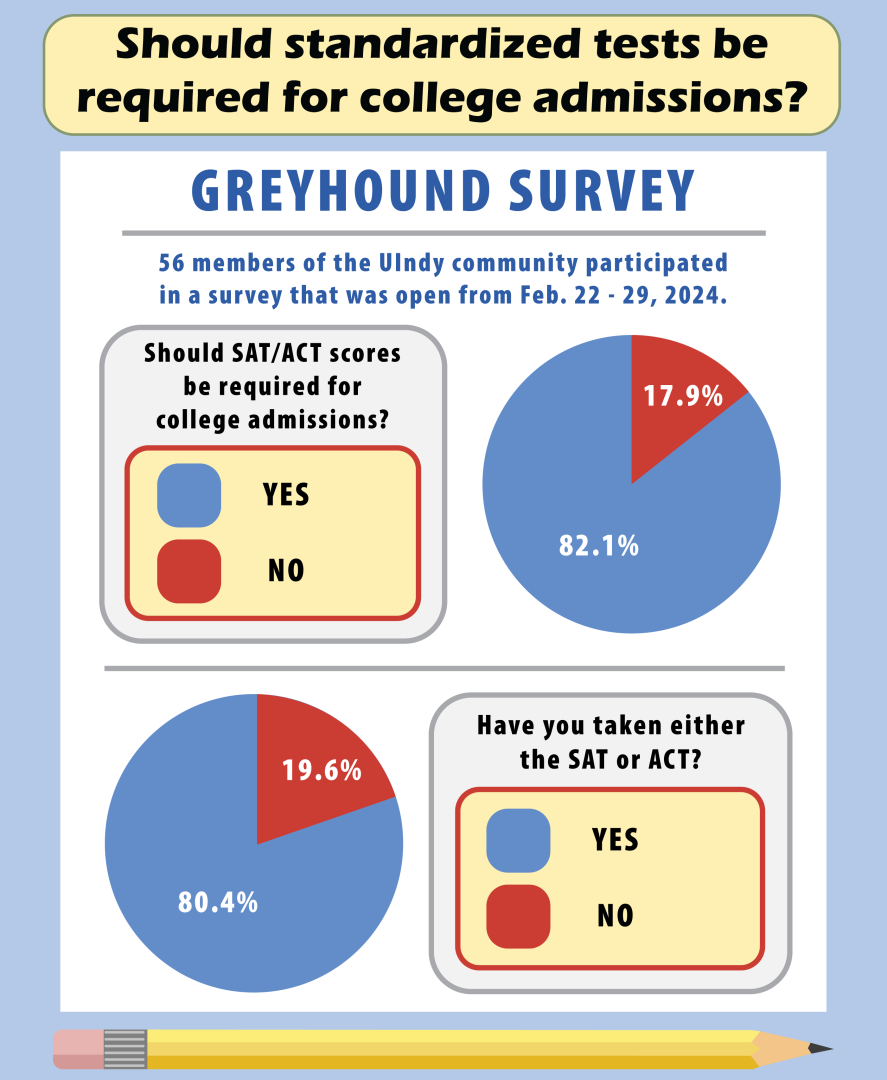I distinctly remember the relief I felt when the colleges I intended to apply to during my senior year became test-optional. I have always been a typical “good” student; I turned in my assignments on time, comprehended class material well and generally understood the public education system and what it needed from me. Despite this, I always dreaded standardized test season as a child and in my teens. The anxiety I had around my performance on these tests gave me my first panic attack in my sophomore year in high school, especially when standardized tests could play a significant role in my future looking ahead to higher education. That anxiety was furthered by the fact that I went to a very competitive, well-known public high school with class rankings—another aspect which can be considered in college admissions, according to the College Board—suddenly making my quest for a bachelor’s degree a cutthroat competition.
The culture of competition that was bred among me and my peers only contributed to stress and anxiety about my performance. Now, high school students are once again facing standardized testing being a requirement in several colleges’ admissions. Ivy League school Dartmouth reinstated standardized test score requirements for admission this year after making scores optional in 2020 in response to the COVID-19 pandemic, according to NPR. Yale is currently considering reinstating test score requirements, according to Axios, and the Massachusetts Institute of Technology went back to requiring test scores in 2022, according to MIT News. Although NPR suggests that other colleges may not follow suit, I worry this sentiment might not last for long.
According to the College Board, the Scholastic Assessment Test—much more commonly referred to as the “SAT”—helps colleges compare students applying from different high schools. In theory, the test is supposed to showcase a student’s strengths and readiness for college. I disagree, and I am not the only one, for, according to the National Education Association’s neaToday, standardized tests are not accurate measures of student learning and growth. However, the NEA says SAT/ACT (American College Testing) scores are typically more impactful when applying to more selective colleges, so it is no surprise to me that elite Ivy League colleges were the first to make the switch back.
The University of Indianapolis’s undergraduate admissions process is currently test-optional, per the university’s webpage. UIndy’s website states they chose to be test-optional because it “provides a flexible and holistic admissions process,” and I agree. While SAT/ACT scores can bolster a college application, schools should remain test-optional, as the world of education has permanently changed since the COVID-19 pandemic. Many students’ educations were thrown for a loop—and this presents a unique opportunity to reform college admissions going forward to better suit students. I say, let students take the SAT or the ACT of their own volition and submit their scores as desired. An unsatisfactory test score should not determine a student’s level of college readiness or eligibility to go to an elite college, especially when considering the disparities between the test scores of students with different socio-economic statuses—a disparity highlighted in a report from CNBC. I could not imagine working hard for four years, juggling good grades, rigorous courses and extracurriculars just to be rejected because someone else was a better test taker. Not to mention, according to a paper published online by the University of California Los Angeles, it is estimated that 40%-60% of students are negatively affected by test anxiety. Requiring standardized test scores in college admissions has thus become increasingly outdated—even colleges do not consider test scores the most important factor in college applications, according to the College Board. One could argue, “Well, how will students with similar applications be considered without test scores?” Let’s change the culture of standardized testing and be done with the negative connotations behind test performance students face. According to neaToday, performance-based assessments such as developing a thorough analysis of a topic in an essay can allow students to show knowledge and skill through problem-solving, critical thinking and applying knowledge to real-world scenarios. That sounds a lot more useful to prepare students for college—or, you know, reallife—than trying to fit every student into one box—or one test. This, in turn, would allow students to choose how to show what they know, and I definitely would have jumped at that opportunity. I bet others would too.









